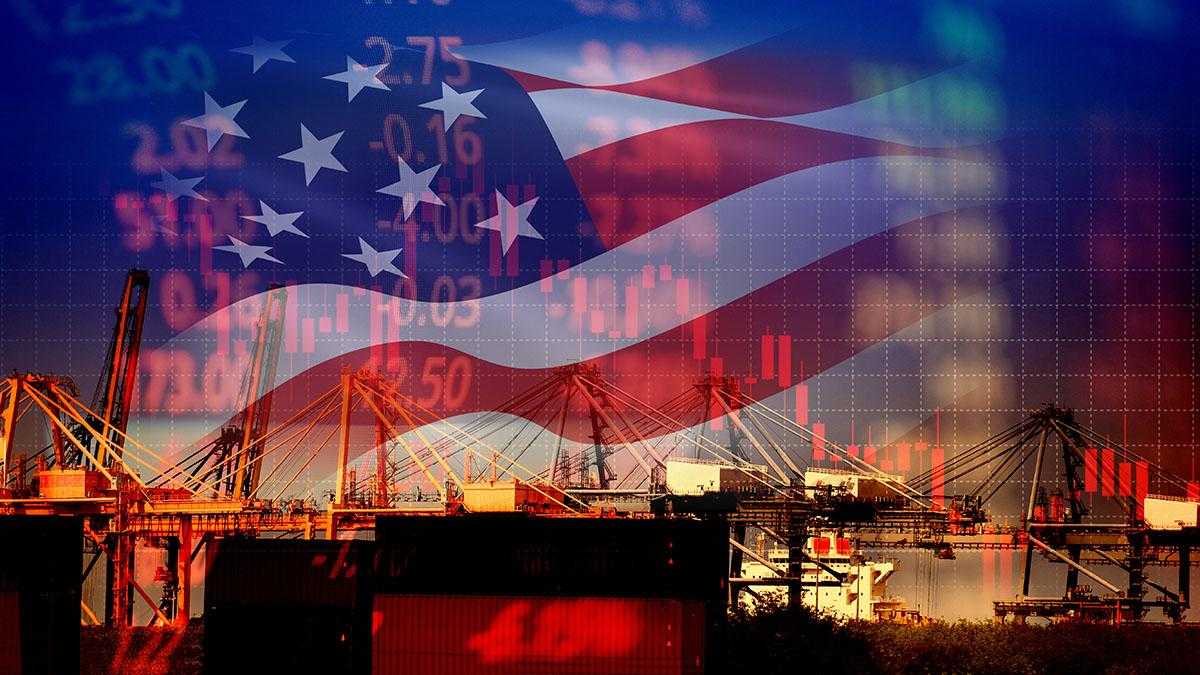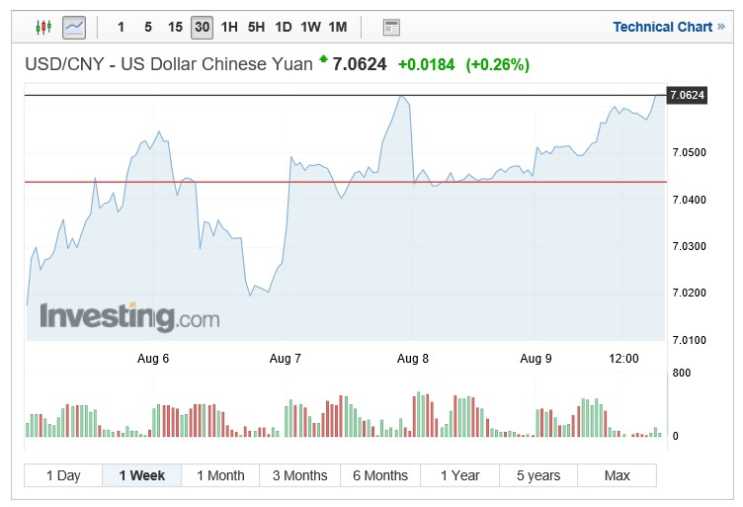The current trade war escalated further this week with President Trump officially accusing China of being a currency manipulator. In recent weeks talks between the two superpowers have if anything regressed and the latest accusations from the White House will do little to ease the deadlock. The comments were motivated by a significant weakening in the CNY exchange rate.

The public accusation provoked China to defend the movement as a reaction to the ‘tariffs imposed upon China and protectionism’.
Steve Mnuchin the US’ treasury secretary since engaging with the International Monetary Fund to ease the uncompetitive advantage the US believes China has supposedly handed itself.
Many may have thought that Trump’s quick-fire round of further tariffs might have been the straw that broke the camels back, it would appear that investors agree with CNY devaluing significantly over the last few days.
What exactly is a currency manipulator?
The term currency manipulator is applied by the US to any nations or central banks that engage in a level of currency intervention. Typically attempting to weaken their local currency against others in order to gain a competitive edge. In this instance, depreciating their currency in order to gain a competitive edge for importers of Chinese goods, lowering the cost with a more affordable currency.
Currency manipulation can also be used to control inflation and arguably quantitative easing can be perceived as a form of currency manipulation, begging the question as to whether China has done anything wrong?
Is the US correct to accuse China of being a currency manipulator?
Whilst the significant tumble in the CNY would lead many to believe that China has intervened to weaken the Yuan, experts believe that actually CNY pricing has just given in to pressure which has been piled on since Trump announced his next round of tariffs. Essentially, tariffs don’t necessarily improve a country’s trade balance in the way supporters think they might. China because of its vast export market has an exchange rate which is market-driven and therefore offsets a tariff. If the appetite for Chinese goods curtails as will the appetite and acquisition of renminbi, weakening in line with the export market decline, especially when faced with such aggressive tariffs from a dominant marketplace such as the US.
It would appear that the IMF agrees with China’s rationale and following Steve Mnuchin’s approach has absolved China of any wrongdoing. Stating that overall in the last year the CNY has remained ‘broadly stable’, confirming that Beijing had done lots to prop up its currency. Finding little or no evidence to substantiate Trump’s claims of currency intervention.
The CNY fell just 2.5% against many of the major currencies this year, despite the pressures applied to export by Trump’s tariffs.
USD/CNY pair this week
The pair pushed to a week high of 7.0623 following Trump’s promise of further 10% tariffs which will affect another $300BN of Chinese exports. Despite China’s exchange rate mechanism which attempts to keep rates pegged under this spot rate.
Whilst currency experts are reluctant to forecast further CNY weakness whilst negotiation between the US and China are ongoing, its clear that the weaker CNY will play into the nation’s hands. Trump might also be more conscious to announce more tariffs on a whim, especially as it appears that the FED still remain reluctant to dance to his music.
BBVA provide some comfort for individual stating that the weaker CNY exchange rate would be unlikely to lead to a crash as experienced 2015.
“The recent sharp depreciation of the RMB is unlikely to lead to financial turmoil like in 2015: the authorities kept the currency’s pricing mechanism intact and have accumulated valuable experience over the past few years; moreover, the PBoC still maintain a tight grip of the country’s capital account.”
Update of US-China trade stalemate
The severity of the current scenario would appear to now be playing out in numerous elements of the global economy, stock markets experiencing volatility, currencies seemingly as instable and gold hitting new highs as investors become more and more risk-averse.
Trump’s new raft of tariffs will do little to help sentiment, the new proposed tariffs will only add to the cost applied of purchasing goods on the average American business owner. Tariffs in June alone cost US importers a supplementary $3.4 Bn, with levies in June totalling $6BN. The increased tariffs representing a 73% increased compared to June 2018.
Trump attested that the US wasn’t ready to make a deal yet stating that:
“We are talking to China. We are not ready to make a deal, but we’ll see what happens,” Trump told reporters at the White House as he departed for a fundraiser in New York. “They want to make a deal. I’m not ready to make a deal.”
China also looks set to block purchases of American agricultural goods, a sector which trumps election mandate had promised to revive.
